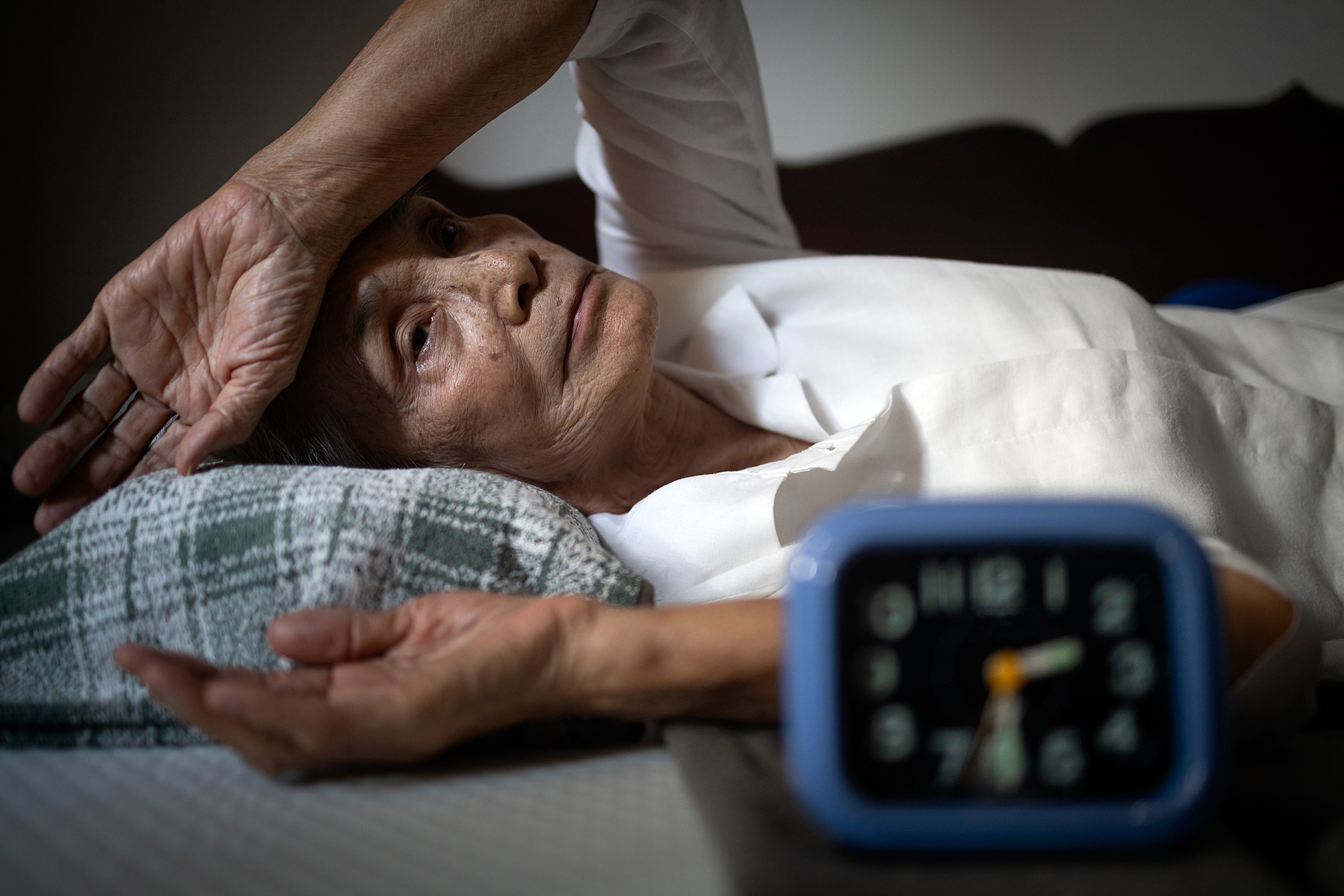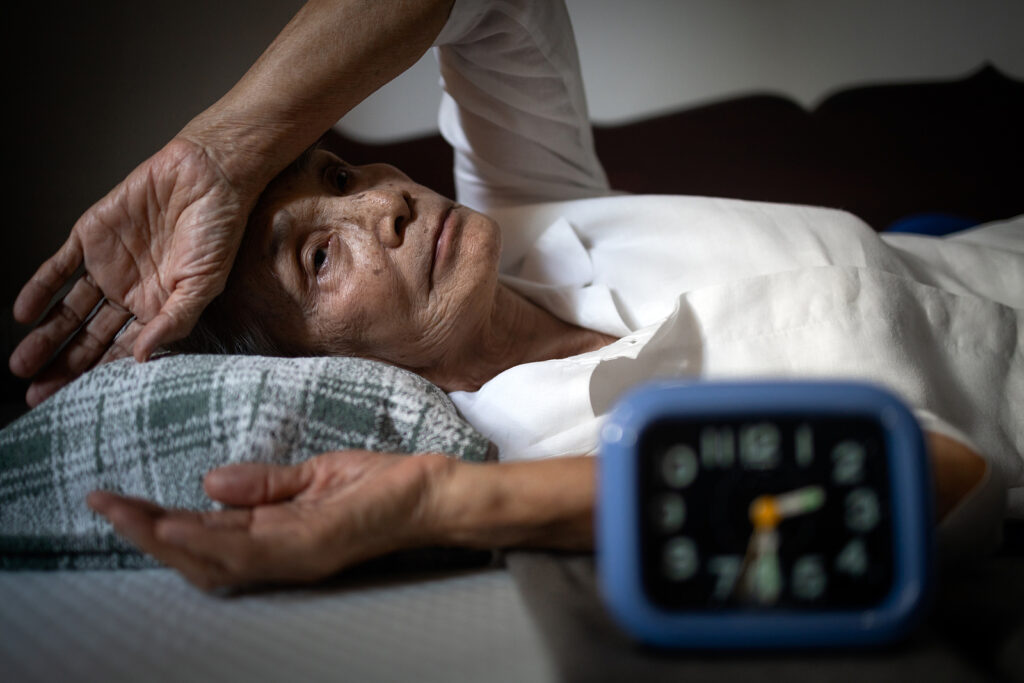
Sleep issues are common as the years pass by, especially with those who have Alzheimer’s disease. One particularly challenging issue is sundowning, which causes disorientation, anxiety, and restlessness in the late afternoon and evening. Managing these issues can be tiring and emotionally frustrating for both the senior and their loved ones. Understanding this, it’s easy to see why Alzheimer’s care strategies need to be put in place.
Create a Consistent Routine
A consistent routine is extremely beneficial to seniors with Alzheimer’s disease. Predictable eating, activity, and rest times can minimize anxiety and disorientation, potentially leading to better sleep. Loved ones should strive to create a peaceful, planned day with familiar patterns. For example, relaxing with calming activities such as listening to music or moderate stretching in the evening helps seniors ease into a calmer state of mind.
Increase Exposure to Natural Light
Natural light exposure during the day helps to maintain the body’s internal clock, also known as the circadian rhythm. This is very useful for seniors experiencing sundowning. Loved ones can encourage spending time outside in the early morning or midday or open the curtains so that sunlight can come through through windows. Light therapy boxes, which replicate natural sunlight, can also be an effective tool for seniors who have limited access to natural light.
Limit Daytime Napping
While naps are useful, excessive daytime sleep might make it difficult for seniors to sleep at night. Short naps, lasting 20-30 minutes in the early afternoon, can help prevent excessive daytime tiredness while not interfering with overnight sleep. If longer naps are essential, home care and loved ones can encourage seniors to take them earlier in the day to balance things out.
Monitor Diet and Fluid Intake
Diet can significantly affect sleep habits. Seniors should focus on balanced meals and limit caffeine and sugar intake, particularly in the late afternoon and evening. Heavy meals close to bedtime should also be avoided because they might upset digestion and make it difficult to fall asleep. Additionally, decreasing fluid intake in the evening can help prevent sleep disruptions caused by the urge to use the bathroom.
Create a Calm and Comfortable Sleep Environment
A calm, comfortable sleep environment might help promote rest. For instance, bedrooms that are cool, quiet, and dark tend to be better for sleeping. As part of the Alzheimer’s care plan, loved ones might also use white noise machines or soft music to not only get seniors ready for bed but for them to listen to as they fall asleep. These things can also help cover up distracting sounds, such as noise from outside.
It’s also important to keep the senior’s bedroom familiar, as they could become disoriented by changes, which may lead to increased restlessness at night.
Schedule Relaxing Evening Activities
As mentioned above, part of the Alzheimer’s care routine should include calm activities in the hours before bedtime. Reading, mild stretching, and listening to relaxing music are all great options. It’s important to avoid stimulating activities, such as watching television or engaging in strenuous physical activity, as they might increase restlessness.
When creating an Alzheimer’s care plan, strategies for managing sleep disruptions and sundowning should be incorporated. Doing so and being consistent with routines can improve seniors’ quality of life and reduce frustrations for them and their family members.
Sources:
https://www.mayoclinic.org/healthy-lifestyle/caregivers/in-depth/alzheimers/art-20047832
https://www.alz.org/help-support/caregiving/stages-behaviors/sleep-issues-sundowning
https://www.alzheimers.org.uk/about-dementia/symptoms-and-diagnosis/sleep-problems-treatments-dementia
The staff at Home Care Matters is available to talk with you and your family about all of your needs. Home Care Matters is a home care agency providing quality and affordable Alzheimer’s care in Gainesville, GA, and the surrounding areas. Call (770) 965-4004 for more information.
We provide elder care in Braselton, Buford, Dacula, Duluth, Flowery Branch, Gainesville, Johns Creek, Lawrenceville, Oakwood, Sugar Hill, Suwanee, Barrow County, Forsyth County, Gwinnett County, Hall County, Jackson County, North Fulton County.
Valerie has the unique experience with home care as she has experienced it from both ends of the spectrum, as a caregiver and as needing care herself as a cancer survivor. Valerie says, “Taking care of someone you love is a physically, mentally and demanding labor of love.Taking care of my mom was the hardest thing I have ever done. It has given me an insight and perspective not many people understand unless you are doing it or have done it.I loved taking care of my mom.I love helping others take care of their love ones too.And now that I’ve been sick, it’s given me a whole new level of empathy and understanding for those who are sick and need help.”
Valerie’s schedule varies daily, but she loves visiting with our clients, families, caregivers, our network partners and being in the office.Says Valerie, “Every day is different, but I wake up excited about what we do, inspired by our team, clients and caregivers.I strive to be a resource to the community.I love my team and I love what we do every day. I like to think my mom would be proud.”
You can reach Valerie by email (Valerie@homecarematters.com) or in our office (770.965.4004).
- How In-Home Alzheimer’s Care Helps Your Parent Stay Safe and Comfortable - December 26, 2025
- After the Fall: How Home Care Helps Seniors Recover Safely at Home - December 19, 2025
- Supporting Seniors with Memory Challenges Through Compassionate Senior Home Care - December 12, 2025

